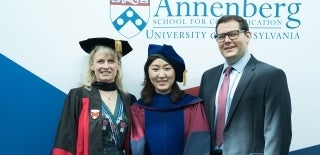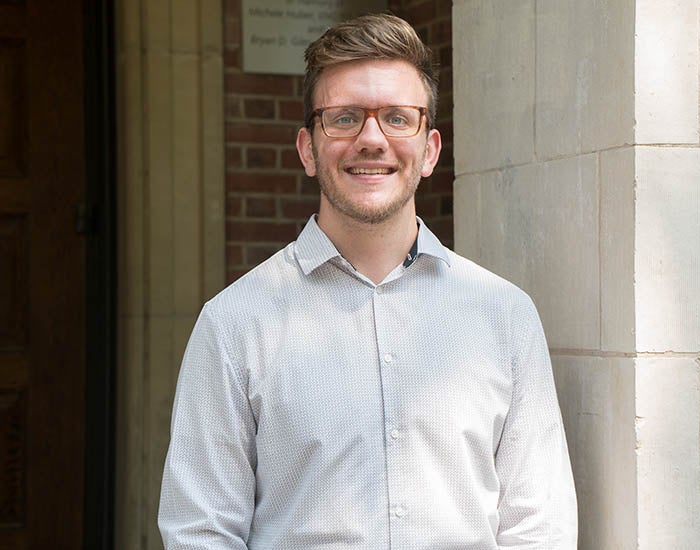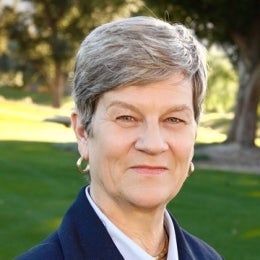
Joint Degree with Political Science
Earn a Ph.D. in both Communication and Political Science from world-class faculty with a single dissertation.
The University of Pennsylvania’s Annenberg School for Communication and Political Science Department of the School of Arts and Sciences offer a joint doctoral degree in Communication and Political Science. This six-year program for students interested in political communication combines the academic resources of Penn’s two well-respected schools, and provides an opportunity for advanced study by students who are interested in both fields. The degree can be satisfied with a single dissertation by the student.
Why Consider a Joint Degree?
A joint degree in Communication and Political Science…
- opens doors to be competitive in two academic job markets, as well as multiple non-academic roles.
- will provide you with unique interdisciplinary expertise on political communication.
- allows you to draw on the resources of two internationally respected graduate programs at a world-renowned university.
Individualized Program of Study
Students can tailor their area of study within political communication based on their interests. For example, some students might want to combine the study of American politics and public opinion with the study of media effects. Others might want to combine an emphasis on new media and information technologies with the study of comparative politics or international relations. The joint doctoral degree program is designed to accommodate the interests of students who approach the study of political communication from broad, interdisciplinary perspectives.
Complementary Components
- The Annenberg School for Communication offers students a firm grounding in a wide range of approaches to the study of communication and its methods, drawn from both the humanities and the social sciences. Its mission is to produce and disseminate cutting-edge scholarly research designed to advance the field’s theoretical and empirical understanding of the role of communication (from face-to-face conversations to mass media), in public and private life. Students pursue coursework and research at individual, institutional, and cultural levels.
- The Department of Political Science is currently experiencing a renaissance. Over the past decade, the faculty has grown by 50 percent, an increase in quantity that has been matched by gains in quality. The department maintains strengths in all four major subfields (American Politics, Comparative Politics, International Relations, and Political Theory) and is being built with an eye to excellence, embracing a variety of approaches and methodologies. Graduate students in political science are actively involved in its many programs, centers, and workshops, including the Christopher H. Browne Center for International Politics and the Penn Program on Democracy, Citizenship, and Constitutionalism.
- The Annenberg Public Policy Center provides many graduate students with opportunities for observational and experimental studies of communication and politics.
How It Works
Academic Program
While each students program is individually tailored, some of the coursework counts toward both degrees. Student must perform well on two sets of exams: one exam in their primary field in Political Science, and one exam in the Annenberg School, which serves as an exam in “Political Communication” for the purpose of the Political Science Department‘s qualifying exam requirement.
A single dissertation fulfills the requirements of both doctoral degree programs. Students will be advised by one member of the Annenberg faculty and one member of the Political Science faculty. (In cases where faculty members hold joint appointments in both, one faculty member may fulfill both roles.)
Students in the joint Ph.D. program will complete research and teaching fellowships at the Annenberg School, as is required of all Annenberg Ph.D. students, as well as completing the required teaching assistantships in Political Science.
While most students apply to and enter both programs simultaneously, current doctoral degree students in either program also may apply to the other program for admission.
Financial Support
Students receive the same tuition waiver and stipend as other doctoral degree students in these programs, however they will receive an additional year of funding, for a total of six years. Students split their research and teaching fellowship assignments equally between both programs.
How to Apply
All candidates for the joint Ph.D. must apply and be accepted into both programs. Applications are available here.
Applicants may use the same statement for both programs, and should indicate that they are applying to both programs. For more information, please contact Rachel Pepper at rachel.pepper@asc.upenn.edu or 215-573-6349.

Experience and Knowledge
“To me, the strength of the joint-degree program comes from the quality of the faculty associated with Annenberg and Political Science who have conducted an impressively broad range of research. No matter what project or idea I’m considering, there’s always at least one faculty member who has the experience and knowledge to advise me.” — Tyler Leigh
Featured Faculty
Get to know some of the faculty in political communication.
Students
Learn more about the close-knit community of students currently enrolled in the joint doctoral degree program in Communication and Political Science.

At the Annual Annenberg Lecture, Kate Shaw and Chris Hayes Reflect on Capturing Attention in a Changing Political Landscape
Every year, the Annenberg School for Communication and the Annenberg Public Policy Center at the University of Pennsylvania’s annual Annenberg Lecture brings to Penn leading voices from academia...

















